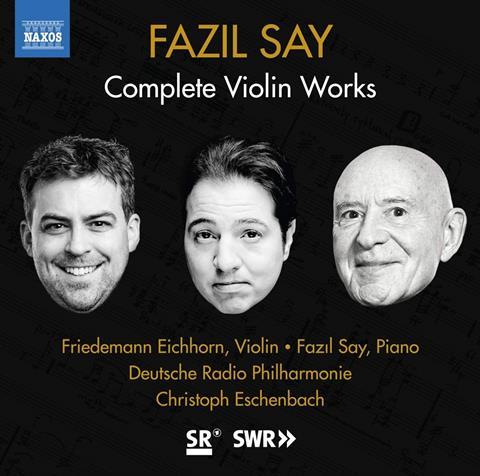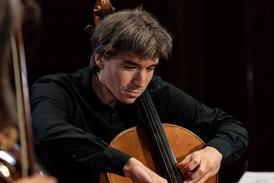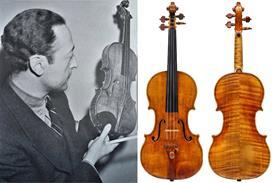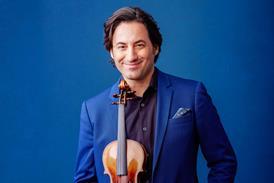Turkish pianist-turned-composer shows his talent in writing for the violin

The Strad Issue: November 2020
Description: Turkish pianist-turned-composer shows his talent in writing for the violin
Musicians: Friedemann Eichhorn (violin) Fazıl Say (piano) Ayküt Koselerli (percussion) Deutsche Radio Philharmonie Saarbrucken Kaiserslautern/Christoph Eschenbach
Works: Say: Violin Sonatas nos.1 & 2; Violin Concerto ‘1001 Nights in the Harem’; Cleopatra
Catalogue number: NAXOS 8.574085
During the last quarter-century the Turkish musician-in-exile Fazıl Say has reinvented himself from mercurial pianist of Classical-era repertoire into a figure of more protean accomplishments, political agitation not the least of them. Like so much art of Say’s homeland, his output for violin is hard to pin down and doesn’t fit any ready-made categories. However the Second Violin Sonata (2019) does not display his brand of eclectic naturalism to advantage. Just as the recitative-like opening movement describes the government-supported despoliation of a gold-rich mountain in strenuously literal terms, so the fragile fluttering of the ‘Wounded Bird’ slow movement, and the subsequent collapse into the ‘Rite of Hope’ finale’s minimalist doodling, springs few surprises.
Wind back to 1997 and the compact five-movement structure of Say’s First Violin Sonata lays its gnarly Bartókian roots bare, especially in this terrific, composer-accompanied performance by Friedemann Eichhorn. Say pays tribute to Eichhorn’s ‘artistic soul’ in the booklet essay, but it’s the beautifully graded, astringent tone palette he draws from the 1731 ‘Lady Jeanne’ Stradivari that grabs me, especially in the brief Cleopatra competition piece and the violin concerto that Say wrote in 2007 with Patricia Kopatchinskaja in mind. Much of the percussion component feels sprinkled over the top, but the densely layered texture of Say’s harmony is authoritatively handled by Eschenbach, and Eichhorn’s seductive turns of phrase above the stave throw a more erotically charged light on the piece than Kopatchinskaja’s own mercurial and eccentrically balanced recording.
PETER QUANTRILL























































No comments yet